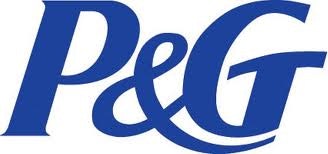NEW YORK (AP) — The Procter & Gamble Company (NYSE:PG) gave former CEO Bob McDonald a pay package worth $15.9 million during his final full year at the helm of the world’s largest consumer products maker, representing a 5% increase from the previous year.
McDonald’s retirement was announced abruptly in May, with the company facing pressure to improve its results. He was replaced by his predecessor A.G. Lafley, who was given a prorated pay package of $2 million the five weeks he served at the end of the company’s fiscal year, according to a filing with the Securities and Exchange Commission.
McDonald’s pay bump was the result of a higher cash-based bonus of $3.3 million, which was up 36% from the previous year. His base salary of $1.6 million and stock awards of $6.4 million were unchanged from the previous year. His stock options were valued at $4.2 million, a 4% dip.
Other compensation rose 7% to $332,877 million, including the value of use of the corporate jet and retirement fund contributions.
Lafley’s compensation included a salary of $217,391 and a bonus of $1.6 million. All other compensation came to $187,264.
The maker of Tide detergent, Crest toothpaste and other consumer goods, like many of its rivals, has been expanding into rapidly growing emerging markets such as Latin America, India and Russia. But there, it has faced tough competition from already entrenched smaller rivals such as Dutch consumer-products maker Unilever plc (ADR) (NYSE:UL) and Colgate-Palmolive Company (NYSE:CL).
The Procter & Gamble Company (NYSE:PG) in 2011 acknowledged that it had made missteps in some emerging markets — which make up nearly 40% of its sales — when it expanded in some product areas too quickly. Since then it has been working on a turnaround effort aimed at focusing on its top 40 top businesses, 20 biggest new products and 10 most profitable emerging markets as it undergoes a cost cutting plan aimed at saving $10 billion by fiscal 2016. The plan was instituted by McDonald, and new CEO Lafley said he plans for the effort to continue.
But investors have been frustrated by the company’s slow revenue growth and stagnant market-share gains globally. The pressure stepped up last July, when activist investor William Ackman took a 1% stake. He has been vocal about the company’s need to streamline operations and improve results. The pressure eventually led to McDonald’s departure at the end of the fiscal year. McDonald had been with The Procter & Gamble Company (NYSE:PG) for 33 years. He joined the company in 1980 and held a variety of positions, including chief operating officer and vice chair, global operations.
For the year ended June 30, net income after paying preferred dividends rose 5% to $11.31 billion, or $3.86 per share. Revenue rose 1% to $84.17 billion from $83.68 billion a year ago.
In fiscal 2014, The Procter & Gamble Company (NYSE:PG) expects earnings excluding one-time items to rise 5% to 7%, implying results of $4.25 to $4.33 per share. It expects revenue to rise 1% to 2%, implying revenue of $85 billion to $85.85 billion. Analysts expect earnings of $4.32 per share on slightly higher revenue of $86.47 billion.
The The Procter & Gamble Company (NYSE:PG) board committee’s report said it uses CEO pay at 25 other big companies, including Wal-Mart Stores, Inc. (NYSE:WMT), Colgate-Palmolive Company (NYSE:CL), Johnson & Johnson (NYSE:JNJ) and General Electric Company (NYSE:GE), as a guide in determining executive compensation.
The company notes that the majority of pay for its executives is tied to performance. The Procter & Gamble Company (NYSE:PG) looks at such measures as organic sales growth, which excludes acquisitions, and earnings-per-share growth.
The Associated Press formula calculates an executive’s total compensation during the last fiscal year by adding salary, bonuses, perks, above-market interest that the company pays on deferred compensation and the estimated value of stock and stock options awarded during the year. The formula does not count changes in the present value of pension benefits. That makes the AP total slightly different in most cases from the total reported by companies to the Securities and Exchange Commission.
The value that a company assigned to an executive’s stock and option awards for 2012 was the present value of what the company expected the awards to be worth to the executive over time. Companies use one of several formulas to calculate that value. But the number is an estimate and what an executive ultimately receives depends on the performance of the company’s stock in the years after the awards are granted.
The article P&G Raised ex-CEO’s Pay to $15.9 Million for Last Year originally appeared on Fool.com is written by Associated Press.
The Motley Fool recommends Johnson & Johnson, Procter & Gamble, and Unilever. The Motley Fool owns shares of General Electric Company and Johnson & Johnson.
Copyright © 1995 – 2013 The Motley Fool, LLC. All rights reserved. The Motley Fool has a disclosure policy.






